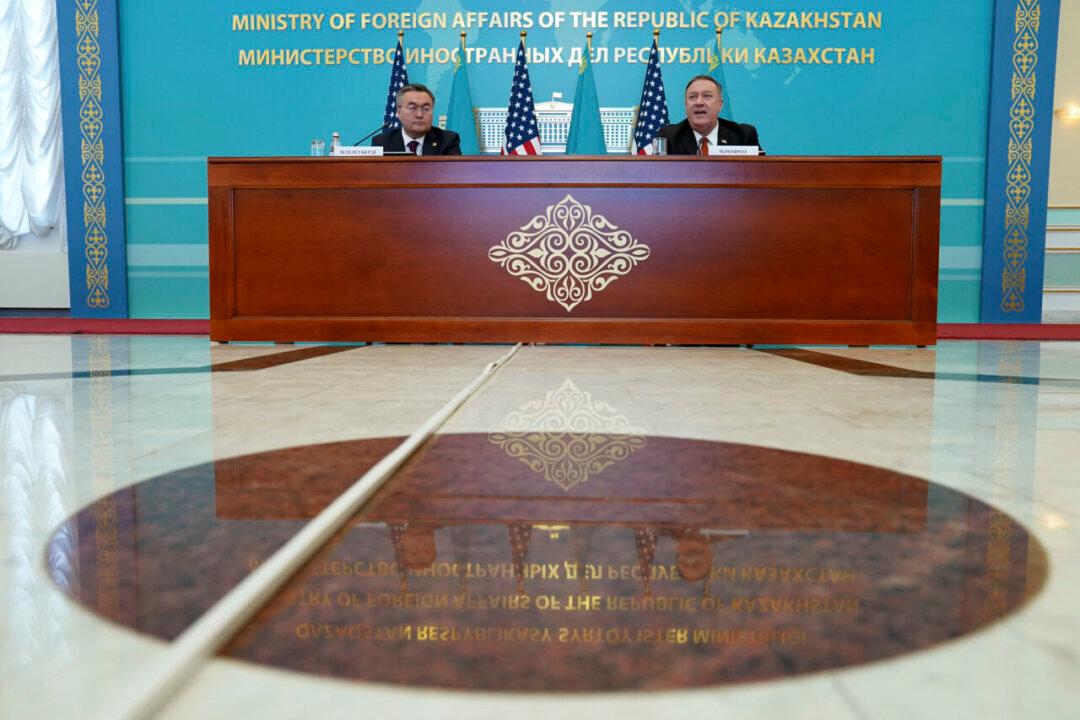U.S. Secretary of State Mike Pompeo on Sunday pressed Kazakhstan to be wary of Chinese investment and influence, urging the Central Asian nation and others to join calls demanding an end to China’s repression of minorities.
Bringing a message similar to the one he has delivered repeatedly to other countries, Pompeo told Kazakhstani officials that the attractiveness of Chinese investment comes with a cost to sovereignty and may hurt, instead of help, the country’s long-term development.





